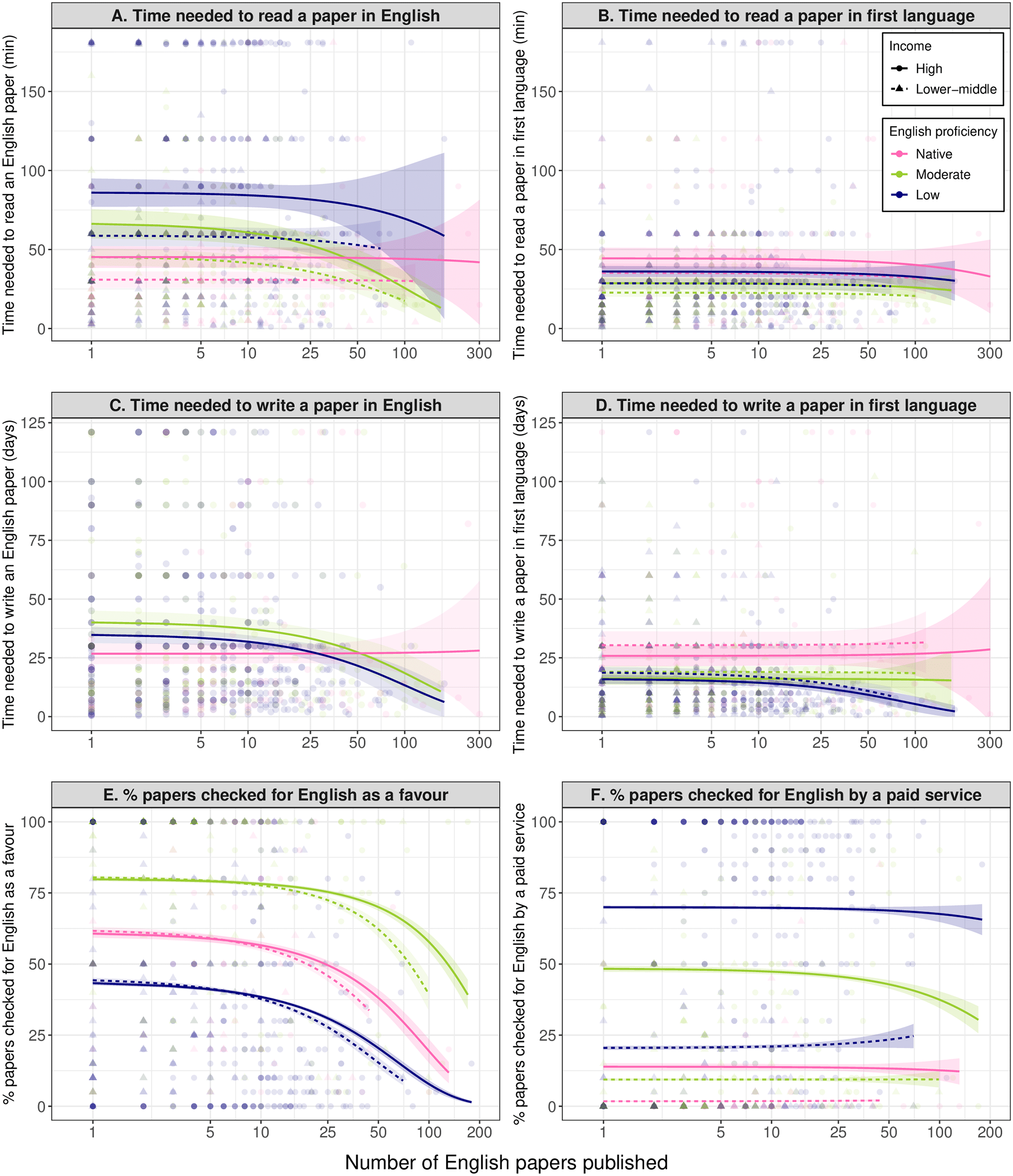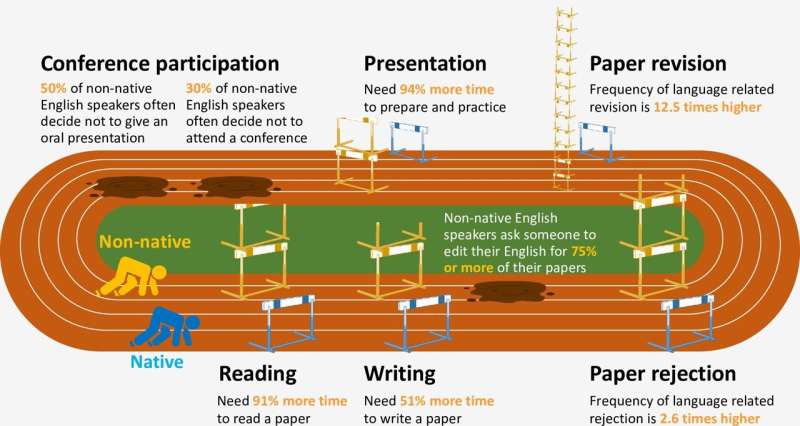
An international survey revealed that the English language barrier significantly hinders science
In science, English is the main language of communication, whether for written documents or presentations. However, this leads to large disparities in the contribution of non-native speakers of English. A survey of 908 international scholars revealed that non-native English speakers find it very difficult to read and write research papers and that their attendance at international conferences has dropped significantly. This reality is very likely to have significant implications in terms of scientific progress.
if around 1.4 billion People in the world are English speakers, only 360 million people speak English natively. though, 95% of scientific articles
They are written and published in English and mastering this language is your ticket to the world of academia. This dominance of the English language contributes to deepening inequalities, affecting academic careers and hindering scientific progress.
It is important to know that English has not always been the dominant language of science. In the past, scholarly exchange took place through languages considered to be of regional importance such as Sanskrit, Persian, Chinese, and Greek. Other European languages, including English, arrived later with colonialism. Between 1880 and 2000, the use of English increased from 38% to 90% in publications in biology, chemistry, medicine, physics, and mathematics, at the expense of other languages such as German, French, and Japanese.
Scientific collaboration and inclusivity involve the participation of a diverse group of people, in order to pool ideas and knowledge and harness the potential of underprivileged communities. However, non-native English speakers – who make up the vast majority of the world’s English-speaking population – face a large number of difficulties in the scientific field and sometimes experience inequality in their professional development.
The results of the new analysis are detailed in biology plus, reveal. This study is one of the few that deals with the language barrier in scientific research. In particular, previous research has indicated difficulties with writing and publishing articles by non-native speakers of English. However, this survey will be the only one so far to accurately quantify the effects.
Tatsuya Amano, lead author of the study who is a non-native English speaker and is affiliated with the University of Queensland, says he was shocked by the results. ” As a speaker of English that is not my native language, I experienced these difficulties firsthand and knew they were common issues, but I didn’t realize just how high each individual hurdle could be with native English speakers. He explains in A communication. Experts have also discovered that a large number of promising scientists have likely had to give up their careers because of language barriers.

Levels of language barriers in reading and writing scientific articles. © Amano et al.
A significant disadvantage in the beginning of a career and low-income countries
As part of their investigation, Amano and his team gathered 908 ecologists (ecologists, evolutionary scientists, and conservation biologists and other related disciplines). This particular area was chosen because of the current environmental context (climate and biodiversity crisis), a global challenge that requires urgent solutions from all walks of life. Each study participant was required to publish at least one scholarly article in English.
The scientists surveyed were from 8 different nationalities, namely: Bangladeshi (106 people), Bolivian (100), British (112), Japanese (294), Nepalese (82), Nigerian (40), Spanish (108) and Ukrainian (66). ) ). These nationalities were ranked according to the level of English language proficiency for each country of origin and standard income (according to the World Bank’s Economic Indicators).
Based on these measures, the participants were classified as follows: Bangladeshis and Nepalese have low English proficiency and low average income, while Japanese also have low English proficiency, but high income. Bolivians and Ukrainians have moderate English proficiency and lower-middle incomes, while Spaniards have moderate English proficiency and high incomes. Nigerians use English as their official language and have a low average income, just like the British, who have a high income.
The survey asked participants to report the amount of effort required to carry out five categories of scholarly activities, including: reading articles, writing, publishing/publishing, and attending conferences. The aim of the survey in particular is to distinguish between the effect of language barriers and that of other types of science-related barriers (economics, conference participation) which are often confused with the former.
You want to remove ads from the site
While continuing to support us ?
It’s simple, just sign up!
At the moment, 20% off On the annual subscription!
The results revealed clear and significant drawbacks for non-native speakers of English. In particular, they need twice as much time to read and write articles and give presentations in English. Once submitted, their essay is 2.6 times more likely to be rejected and 12.5 times more likely to receive a review request. These risks are not related to the quality of their work, but only to the level of their writing in English.

Illustration summarizing the results of the study. © Amano et al.
In addition, nationalities with an average proficiency in English spend an average of 46.6% more time reading articles written in English. This percentage rises to 90.8% for those with a low level of language proficiency. This difference can be found even among mid- and late-career researchers. On the other hand, a large number of them refuse to attend or participate in international conferences (i.e. in English), for fear of not being able to communicate properly. The study authors found that these challenges disproportionately affect early-career scientists from low-income countries.
” We must abandon this old system. Anyone in any part of the world should be able to participate in science Amano says. Offers the latter Solution Possibilities such as a free English transcript, or financial support for efforts to overcome language barriers. to
Note that editing and translation services are currently available, but they are very expensive, especially for those at the beginning of their careers, not to mention the decrease in readership if the article is not initially published in English…
source : Biology PLUS

“Organizer. Social media geek. General communicator. Bacon scholar. Proud pop culture trailblazer.”
